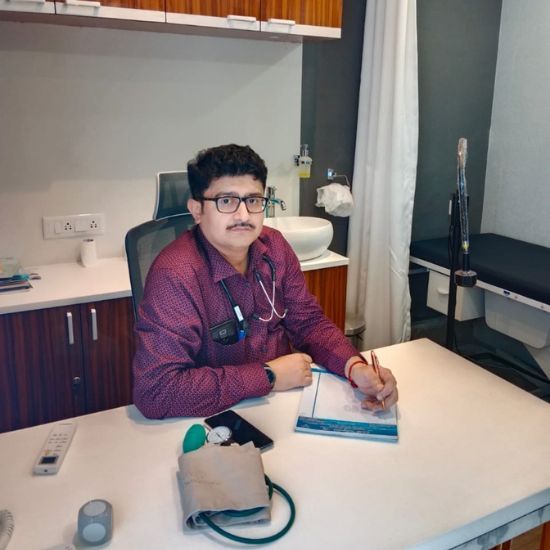Many people feel anxious before their first Urology appointment, but understanding the process can ease such fears. This specialized field deals with sensitive issues, and knowing what to expect can help alleviate those concerns.
In this article, we will outline the typical steps taken during the initial consultation. It will help you in making your visit with clarity and confidence.
Who Is a Urologist?
A urologist is a doctor who specializes in the urinary system. This system includes the kidneys, bladder, ureters (tubes that carry urine), and urethra (the tube that carries urine out of the body). Urologists also treat problems with the male reproductive system, such as the prostate and testicles. They can help both men and women with problems like urinary tract infections (UTIs), kidney stones, and bladder control issues.
What Do Urologists Do?
Urologists specialize in treating issues related to the Urinary tract in both men and women. They also treat problems related to the male reproductive system. They handle a lot of different issues including that:
- Kidney Stones
- Male Infertility
- Urinary Tract Infections (UTIs)
- General Male Sexual Health
- Erectile Dysfunction
- Bladder Control Problems
- Prostate Issues
Their work is very important for men’s health. Apart from treating prostate and sexual health, they also treat many conditions that affect women.
Common Urinary Problems
- Your Urinary system works very hard to regulate and eliminate urine waste. Hence, it is absolutely not surprising that it can lead to problems.
- These Urology problems affect the Urinary tract and in men, they also affect the reproductive system.
- The most common form of Urinary problems is the UTI. Also known as Urinary Tract Infections (UTIs), they are the most common form of Urology problem.
Luckily Urinary Tract Infections are treatable with antibiotics. They need to get treated as soon as possible to prevent any further infection and the risk of complications. If you have a consistent condition of UTI then seek prompt medical advice.
Preparing For Your First-Time Visit
Here are a few steps to prepare for your first visit to a Urologist:
Arriving At Office
- After you arrive at the Urologist’s office, you are very likely to check in at the front desk.
- You must carry with you all the necessary medical documents. It could be previous test results or a list of medications that you are taking.
- If you have got a referral from another doctor, then make sure to bring that as well.
Filling Out Paperwork
- Before seeing a Urologist, you need to fill out paperwork.
- This generally includes medical history, personal information, and details about why you are visiting.
- Do not worry if you are unsure about any questions as the staff will be there to help.
- The questions asked to you help the doctor in understanding your health background.
Meeting The Medical Assistant or Nurse
- Then a medical assistant will call you in. They are going to take you to a private room where you can talk about your medical health.
- They might also ask you questions about your symptoms, medical history and any medications that you might be taking.
- Be open and honest with them as this will help the Urologist in providing you with the best care.
Discussing Your Concerns
- As already discussed briefly before, you will have the chance to talk about any health worries or issues you have.
- This would be the ideal time to ask questions and explain your symptoms.
- The more details that you share, the better the doctor can get a grasp on your situation.
Physical Examination
- After discussing your concerns, the Urologist will perform a physical exam.
- This involves checking your genital area, abdomen or any other related parts.
It’s only a normal part of the visit, and you can ask questions during exams if you feel unsure about something.
Procedures And Tests
- Depending on what the doctor finds, they might suggest certain procedures and tests.
- This could include urine tests, blood tests or even imaging studies like an Ultrasound.
- The doctor will also explain why such tests are necessary and what exactly they hope to find.
Discussing Results
- After the test results are out, you can come back to discuss the results.
- The Urologist will then explain what the results indicate for your health.
- They might also recommend treatment options/next steps based on what they find.
Follow-Up Appointments
- Finally, you are going to have to schedule a follow-up appointment to monitor your health. Or even for discussing treatment further.
- Make sure to keep track of the appointments which your doctor gives you.
Preparing For The Next Steps
After your initial visit, it would become essential to stay proactive and informed about your health. Here are a few tips which you need to keep in mind:
Thoroughly Follow Medical Advice
If a Urologist recommends treatments or any lifestyle changes to be made, make sure to follow them through.
Keep Track
You also need to maintain a personal health record of your symptoms and medications. This is going to prove to be helpful for you in future visits.
Schedule Follow-Ups
- If a follow-up appointment is necessary, then make sure to schedule it before leaving the office.
- This will make sure of a continuity of care.
Seek Help And Support
If you happen to have any ongoing concerns, then consider discussing them with a trusted friend or family member who will be able to provide you with emotional support.
In Conclusion,
The first visit to a Urologist is a crucial step in addressing any reproductive health and urinary issues. Understanding the process of your first Urologist transforms any anxiety into confidence. With Dr. Nilanjan Mitra, you will find a partner who listens and addresses your needs with compassion.
Don’t wait, book your appointment today and take the first step towards better health.


